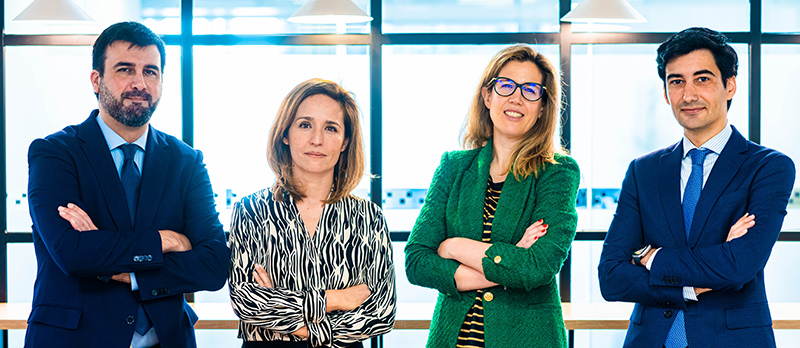
An amendment to the European Long-Term Investment Funds Regulation (known as ELTIF 2.0) was approved in February 2023. An issue that has been the subject of debate at the 26th edition of the FundsPeople Legal Debate. This Regulation includes a number of new features that could enhance the use of these vehicles, but there are still some aspects that need to be improved.
Miguel Sánchez Monjo, partner at Cuatrecasas, believes that "with the new reform we see opportunities for these new funds, especially for strategies where Spanish funds might not be as efficient: investment in real estate or infrastructure, direct lending or funds comprised of funds", he says.
Sánchez Monjo summarises the advantages of the new reform: "The marketing of these funds is simplified, as they can be marketed to retail investors with no minimum investment volumes, the need for advice is eliminated, though a favourable suitability assessment of the investor (or, if negative, the express consent of the investor and a representation that they are aware of the risks of the fund) is required". In addition, he points out that "the managers of these funds can benefit from the new system provided for in the Startups Act, according to which the carried interest they receive (considered as earned income) can benefit from a 50% reduction in their taxable income", he says.
Bárbara González, counsel at Linklaters, agrees, and recalls other important new features that make the ELTIF a much more flexible structure: "In addition to the broader list of eligible assets mentioned by Miguel, there is also greater flexibility in terms of diversification ratios (which generally move from 10% to 20% and even disappear if they are not going to be marketed to retailers); or in the minimum investment in eligible assets, which currently stands at 70% and will move to 55%", she explains.
Outstanding issues
Even so, González points to an obstacle that limits the development of this vehicle: "The changes will be welcomed by the sector because they include much flexibility and more eligible assets. But taxation is the great unresolved issue that needs to be addressed if this vehicle is to take off in Spain", she adds.
This is an issue that has aroused much interest over the past year. Proof of this is "the fact that many institutions are creating their own specific fund management firms to create alternative products", says Elisa Ricón, CEO of Inverco.
Increased supply
It could also open up new possibilities for fund managers. This is the opinion of Alfredo Oñoro, Director of Regulatory Compliance at Cecabank: "It may serve as a way for some fund managers to get out of previous closed-end products that they were using for certain investments and that [were not] exactly what they wanted to do. Now they are given the opportunity of using other vehicles that are a better fit and even have better taxation than the pre-existing products when it comes to attracting investments from customers who may be interested in other types of alternative products", he suggests.
Even so, Ricón encourages some reflection: "Any opportunity to create new figures that can be used to channel resources to capital markets is welcome. But the European regulatory process should be more receptive and analyse in depth the proposals put forward by the industry, which is responsible for implementing the regulatory projects. One only has to consider how long it has taken to introduce certain regulations that are then practically unrepresented in Europe, such as the PEPP (pan-European product), of which there is one in all of Europe, the ELTIFs, the EuSEFs, etc. We need to listen more when regulating", he concludes.


